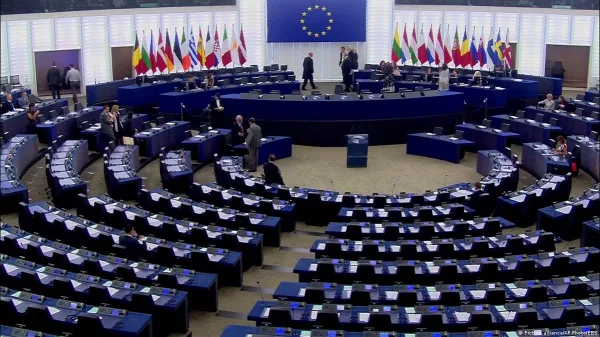Recent elections in two of Germany’s wealthiest and most populous states, Hesse and Bavaria, resulted in bad news for the current “Traffic Light” coalition government. The three parties comprising the coalition all suffered losses in the elections, with the liberal Free Democratic Party (FDP) failing to even meet the required electoral threshold to be in either state’s parliament. These losses have prompted many, both inside and outside the parties, to call for changes in governance to combat the evident dissatisfaction of a great number of Germans with their government. While these were only state-level elections and had no influence on the federal level, they were seen as a representation of the state of German politics in general and the popularity of the current government.
In both elections the center-right Christian Democratic Union (CDU) party and its sister Christian Social Union (CSU) party in Bavaria came out on top, taking 34.6% in Hesse and 37% in Bavaria. However, the biggest news were the gains of the far-right Alternative for Germany (AFD) party, which ended up with 18.4% in Hesse and 14.6% in Bavaria, increases of 5.3% and 4.4% respectively since the last elections 5 years ago. The victory of the AFD’s platform of Euroscepticism, xenophobia, and nationalism was just another symptom of the rise of the alt-right in Germany. Failures of the current government to address issues such as irregular migration surges, spiking energy prices related to the conflict in Ukraine, and the continued problem of housing among others prompted many voters to switch their party allegiance to the opposition. However, some find that this loss fits in with a history of ruling parties that lost support in the midst of their term in power.
These gains of center- and far-right parties in Germany are just another example of an apparent trend in many EU countries. General elections held in Spain over the summer saw the conservative Christian-democratic People’s Party (PP) come out on top, taking 33% of the vote, a rise of over 12% since the last elections in 2019, with the far-right Vox party receiving considerable support as well. Even clearer gains can be seen in Italy, whose prime minister Giorgia Meloni’s coalition is full of nationalist, conservative, and populist parties, who some even accuse of being fascist. A huge surprise came with the recent Polish elections, where the hard-right Law and Justice (PiS) party did poorer than expected, but nevertheless won the most seats out of any party.

The European Union is seen around the world as a symbol of liberalism, cooperation, and democracy, so the rise of parties going against those values in many states has aroused great concern. Some prescribe these recent rises in popularity to the cost of living crisis descended from Russia’s invasion of Ukraine and remnants of COVID, in addition to the continued issue of migrants, and the huge unpopularity of climate initiatives put into place by some left-wing governments. However, others say the rise of the far-right has been in motion for decades and is only now becoming noticeable, with long-term issues of Islamophobia and Euroscepticism having slowly boosted these parties over time. The post-World War Two taboo against voting for far-right parties seems to be slipping away, as memory fades and younger generations weren’t alive to see the effects of the most famous examples of the far-right in Europe.

Beyond state and national level legislatures, this issue also impacts the EU’s policymaking. Researchers predict that current large parties of the EU Parliament such as the center-left Socialists & Democrats (SD) party and center-right European People’s Party (EPP) will suffer losses in coming elections, potentially forcing them to partner with more extreme far-right parties to be able to pass legislation. Naturally, this would severely limit the content of said legislation, stemming progress on issues like climate change and immigration. With this in mind, many are watching elections like those that just took place in Germany closely, as they may spell out the future of the EU and the institutions that have made it the way it is today.







